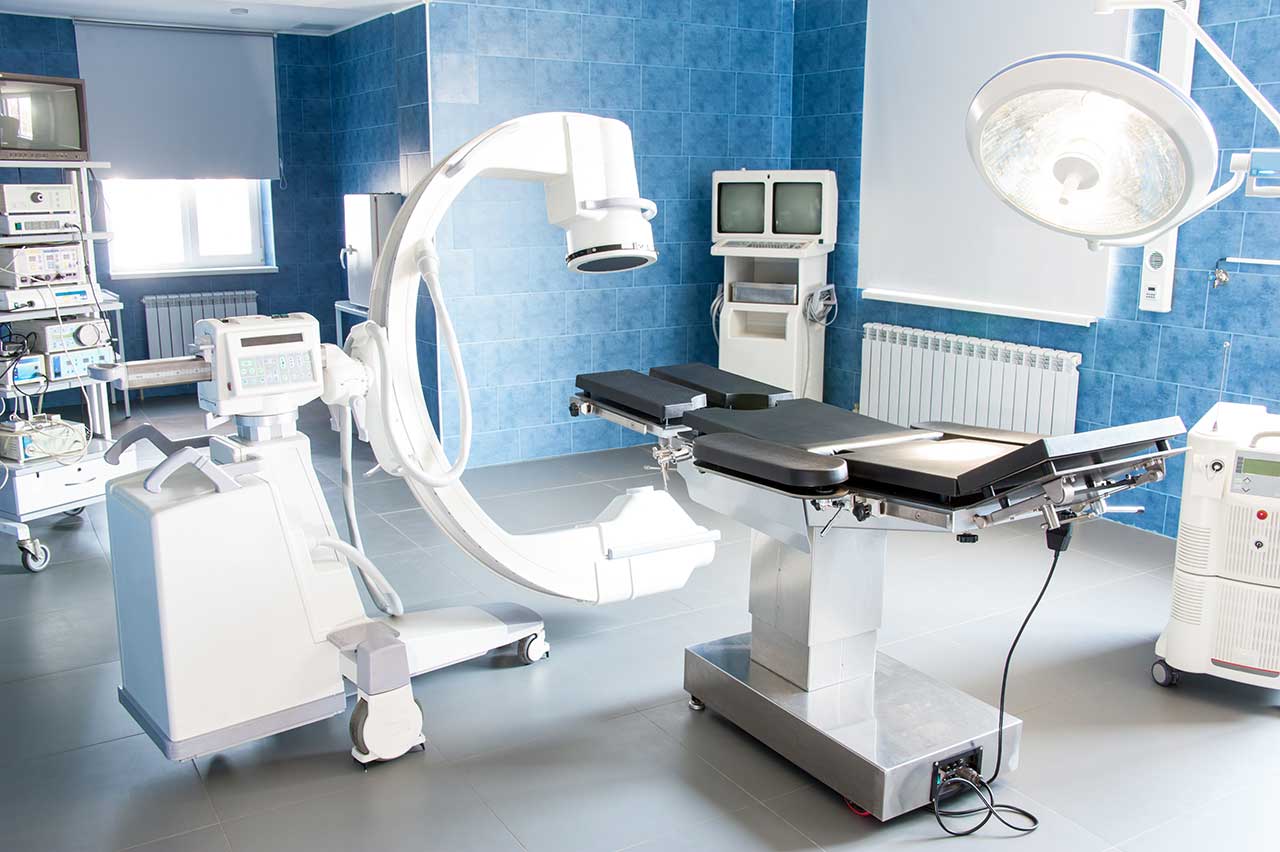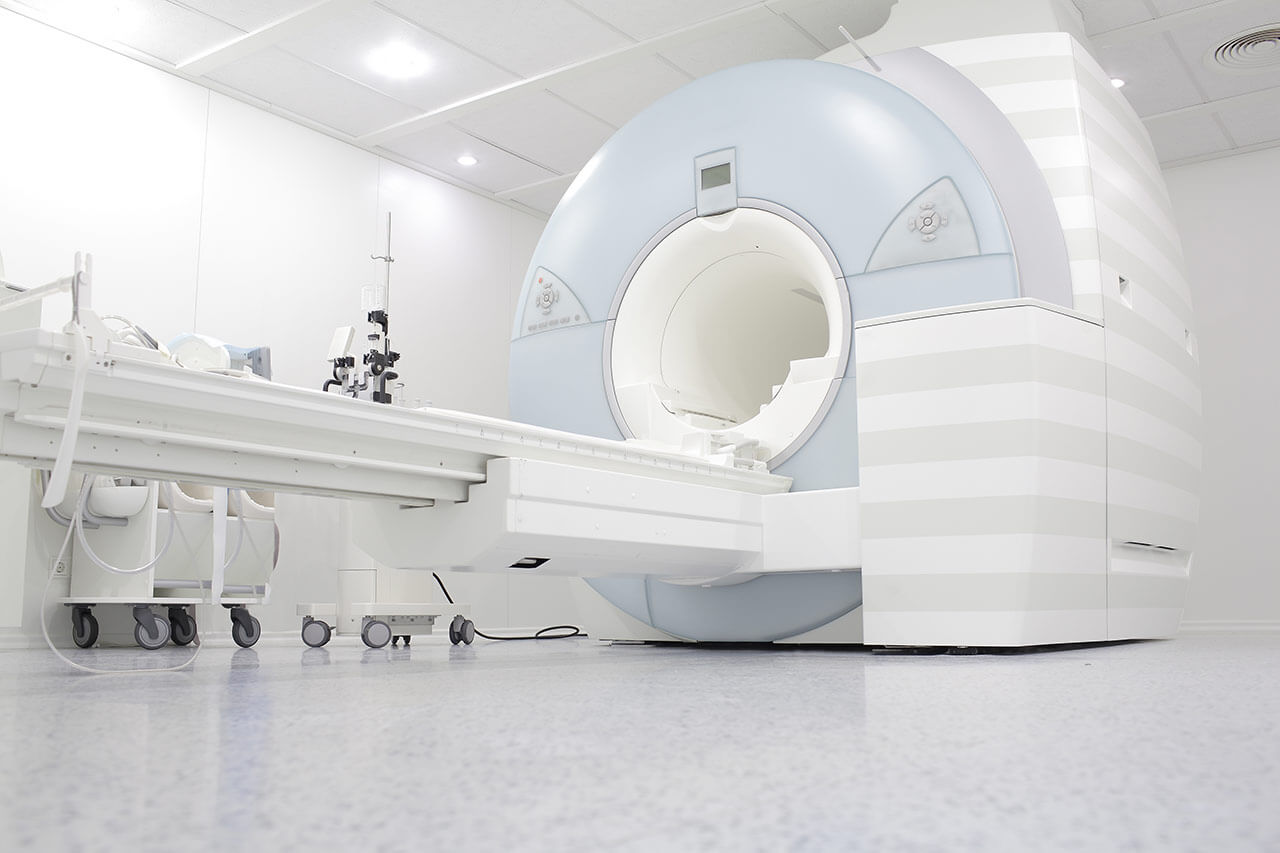
The program includes:
- Initial presentation in the clinic
- clinical history taking
- review of medical records
- physical examination
- laboratory tests:
- complete blood count
- biochemical blood analysis
- blood coagulation analysis (aPTT, PT, INR)
- inflammation indicators (CRP, ESR)
- metabolic analysis of blood
- cardiovascular disease risk markers
- kidney function test (creatinine, urea)
- color doppler echocardiography
- color doppler sonography of cerebral and peripheral vessels
- carotid artery duplex
- CT angiography (on indication 1300 €)
- MRI angiography (on indication 1300 €)
- nursing services
- consultation of related specialists
- consultation of the chief physician and all leading experts
- development of individual treatment plan
- written statement
Required documents
- Medical records
- Ultrasound scan and angiography (if available)
Service
You may also book:
 BookingHealth Price from:
BookingHealth Price from:
About the department
The Department of Vascular Surgery at the St. Joseph Hospital Haan offers the diagnostics and treatment of the full range of diseases of the arteries, veins and lymphatic vessels. Particular attention is paid to the treatment of arterial circulation disorders, occlusive peripheral arterial disease of the lower extremities, abdominal and thoracic aortic aneurysms, varicose veins, chronic non-healing wounds and other pathologies. In most cases, the department's specialists use advanced low-traumatic endovascular techniques. In more complex cases, the vascular surgeons resort to hybrid interventions (a combination of open and endovascular techniques). Open surgical interventions are extremely rare. Since December 2008, the department is known as a recognized Center for Vascular Diseases certified by the German Society of Vascular Surgery (DGG). The department is headed by Dr. med. Udo Huberts.
Of particular interest to the department's specialists is carotid artery surgery for stroke prevention. The operation is performed under general or local anesthesia. During the surgical procedure, the carotid artery is dissected and the narrowed area is removed. Depending on the length of the affected site, the artery is sutured directly or using donor vascular tissue. A bypass procedure maintains a constant blood circulation in the blood vessels of the neck, which ensures an appropriate blood supply to the brain. The final stage of the operation is the imaging of the blood vessels with the help of contrast agents (angiography) in order to assess the result of the intervention. As a rule, the patient stays in the hospital for 3 to 5 days.
The department's doctors have vast experience in the treatment of obliterating atherosclerosis of the lower extremities. Small stenoses are repaired with a balloon catheter, which is inserted into the inguinal vein. If doctors cannot perform a balloon dilatation, then bypass surgery is recommended for the patient. To form a vascular shunt, the specialists use the patient's own veins, which have a number of advantages as compared to artificial and allogeneic materials. The department's special offer is minimally invasive bypass grafting, in which a vein is taken using endoscopic techniques (keyhole technique). This approach contributes to a significantly improved wound healing. Many interventions are performed as a combination of open and minimally invasive techniques (hybrid interventions).
Aneurysm is a fairly common pathology in the department's clinical practice. The department deals with the treatment of thoracic and abdominal aortic aneurysms. Most aneurysms are caused by vascular calcifications. The insidiousness of the aneurysm is that it does not cause any symptoms, so patients usually do not even know that they have this pathology. Moreover, the ruptured aneurysm causes a severe internal bleeding and often leads to death. The ruptured aneurysm requires emergency surgery. In most cases, the department's specialists detect aneurysms when performing examinations for other complaints. To confirm the diagnosis, the healthcare professionals conduct a clinical examination, ultrasound and computed tomography, if indicated. In the case of small aneurysms, the department's vascular surgeons recommend the patients to undergo regular ultrasound scans to monitor the pathological process and provide patients with timely medical care. In the case of large aneurysms, surgery remains the only effective treatment. The department's specialists successfully perform endovascular and open interventions for aneurysms, but the option of sparing surgery is always considered first.
Other key areas of the department's clinical activities include the treatment of varicose veins, the formation of vascular access for hemodialysis, and the surgical treatment of diabetic foot syndrome. The department's specialists devote enough time to the thorough diagnostics and personal communication with their patients, so that each treatment regimen is unique and best meets the requirements of the patients.
The department's surgical range of services includes:
- Treatment of severe and life-threatening circulatory disorders in patients with diabetes mellitus
- Shunting for circulatory disorders, including obliterating endarteritis
- Carotid artery surgery for stroke prevention
- Open and endovascular treatment of thoracic aortic aneurysms
- Open and endovascular treatment of abdominal aortic aneurysms
- Balloon dilatation and stent implantation for vascular stenosis
- Surgical treatment of varicose veins and chronic leg ulcers
- Formation of a vascular access for renal replacement therapy (hemodialysis)
- Minimally invasive shunting techniques
- Minimally invasive interventions for circulatory disorders of the upper limbs
- Other medical services
Photo of the doctor: (c) St. Josef Krankenhaus Haan
About hospital
The St. Joseph Hospital Haan has a long history of providing top-class medical services and tender care for patients in accordance with Catholic principles. The priority clinical focuses include cardiology, pulmonology, gastroenterology, oncology, endocrinology, general and abdominal surgery, endocrine surgery, hernia repair surgery, orthopedics and traumatology, vascular surgery and joint replacement surgery. The outstanding level of medical services provided at the hospital is confirmed by the DIN EN ISO 9001:2015 quality certificate. More than 8,500 inpatients and about 11,000 outpatients are treated here annually. The hospital regularly demonstrates good treatment success rates, and therefore it is deservedly considered one of the best in the region.
The hospital has special competence in arthroplasty and foot surgery. According to the prestigious Focus magazine, the direction of diabetology is certified by the German Diabetes Society, and is also ranked among the best specialized departments in Germany.
The medical facility has modern equipment, which allows the doctors to carry out high-precision diagnostics and effective treatment of even extremely complex pathologies. The operating rooms are adapted for low traumatic endoscopic and laparoscopic interventions, so the number of classic open surgical interventions is negligible.
The best German doctors with vast clinical experience work at the hospital for the benefit of their patients. The healthcare facility has about 300 employees, for whom the patient and his or her individual needs and wishes always come first.
Photo: (с) depositphotos
Accommodation in hospital
Patients rooms
The patients of the St. Josef Hospital Haan live in comfortable and cozy rooms designed in bright colors. Each patient room is equipped with an ensuite bathroom with shower and toilet. The standard patient room includes an automatically adjustable bed, a bedside table, a wardrobe for storing personal belongings, a table and chairs for receiving visitors, a TV and a radio. The hospital offers Wi-Fi (for a small additional fee).
Meals and Menus
The hospital offers tasty and healthy three meals a day. Breakfast is served as a buffet. For lunch one can have a daily changing complex full menu, as well as a diet and vegetarian menu. Additionally, one can order afternoon coffee with pastries. As a rule, light meals are served for dinner. If necessary, you will be offered an individual menu.
Further details
Standard rooms include:
Religion
The hospital has its own chapel where Catholic services are held. If necessary, you can be accompanied to the place of the religious service.
The services of representatives of other religions are available upon request.
Accompanying person
Your accompanying person may stay with you in your patient room or at the hotel of your choice during the inpatient program.
Hotel
You may stay at the hotel of your choice during the outpatient program. Our managers will support you for selecting the best option.



